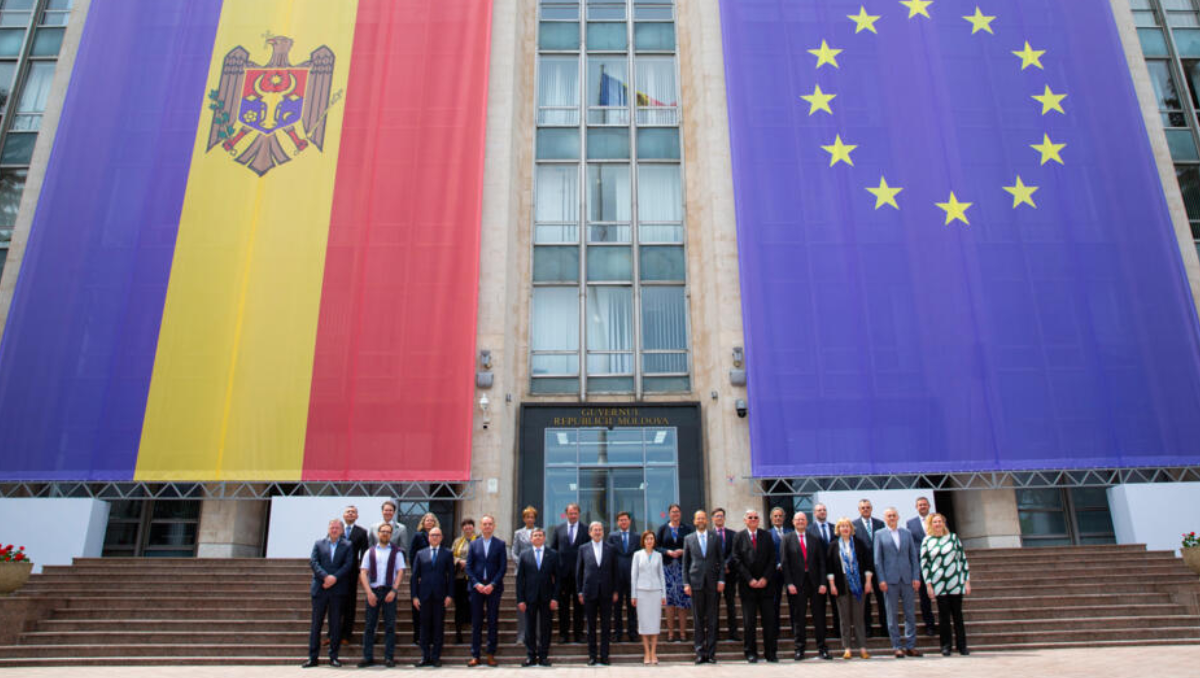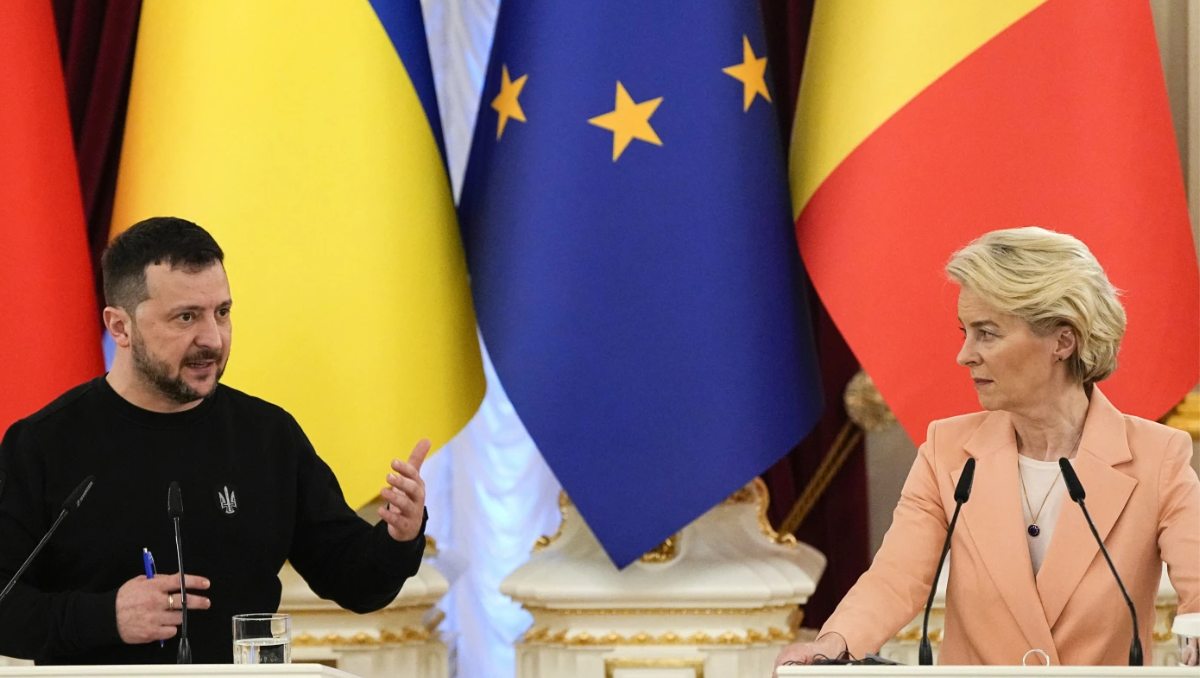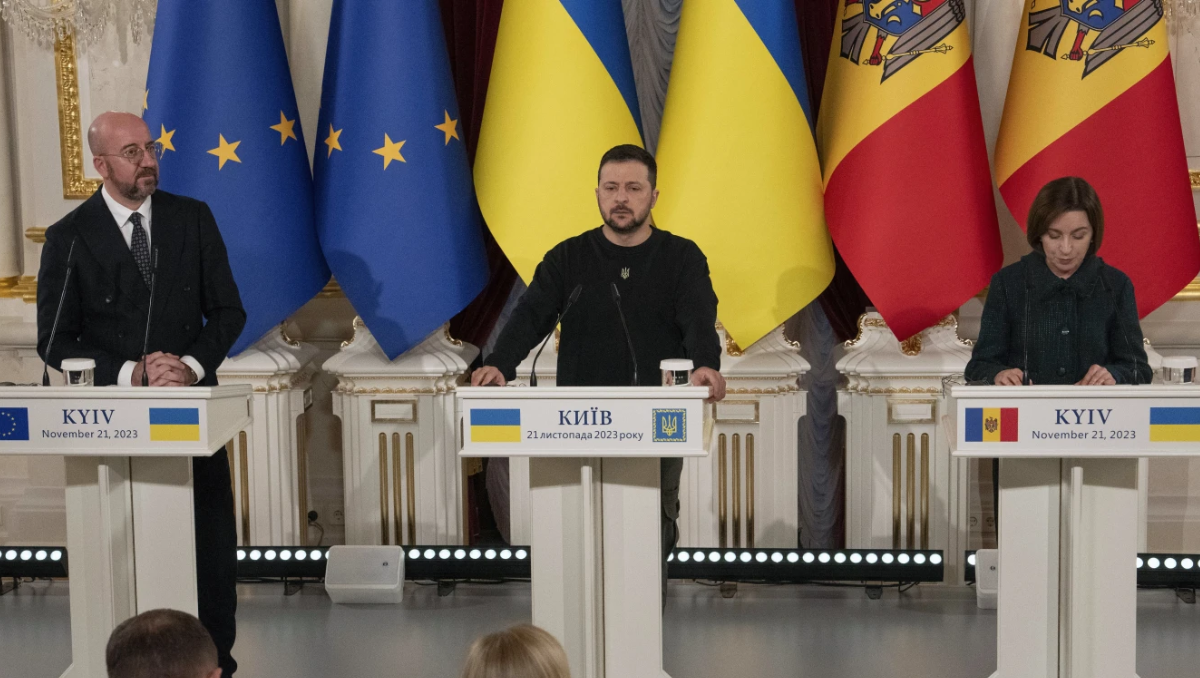Ukraine will receive a political lift in the midst of its struggle against Russia’s invasion when the European Union opens membership discussions with it on Tuesday. However, there is still a lengthy and challenging route ahead before the country can join the bloc.
The upcoming event in Luxembourg, while primarily symbolic, holds immense significance. The negotiations, which will gain momentum once the European Union has thoroughly examined Ukrainian regulations, will determine the necessary reforms to align the country with EU standards.
However, by announcing the opening of negotiations with Moldova, its neighbor, and Ukraine, the EU is indicating that both nations are shifting away from Russian influence and further closer to Western integration.
For many Ukrainians, who link their present struggle with Moscow to the Maidan upheaval in 2014, when demonstrators overthrew a pro-Russian president who had broken a vow to forge closer ties with the EU, the occasion will be particularly emotional.
According to President Volodymyr Zelenskiy’s foreign policy advisor Ihor Zhovkva, it would greatly boost the morale of Ukrainians. In Kyiv, he stated that it is highly significant.
The Ukrainian delegation will be led by Prime Minister Olga Stefanishyna at the gathering, which is referred to as an Accession Conference in EU jargon. Speaking on behalf of the EU will be Belgian Foreign Minister Hadja Lahbib, whose country now holds the rotating presidency.

Candidate countries have a difficult road ahead of them as they must undergo extensive reforms to bring their laws into compliance with EU norms on everything from addressing corruption to managing agriculture to integrating customs policies.
Ukraine urging harder
For Ukraine and Moldova, the journey towards EU membership is further complicated by unique challenges. The conflict in Ukraine, for instance, raises questions about the feasibility of its membership if a part of its land remains under Russian occupation. Similarly, the presence of Russian military in Moldova’s breakaway Transdniestria region presents a significant hurdle for its membership aspirations.
Though on a smaller scale, given that the Russian military is stationed in Moldova’s breakaway Transdniestria region, the likelihood of its membership raises similar problems. Along the way to membership, the two nations will face political as well as technological and legal obstacles.
Moldova has been watching Russia’s invasion of its neighbour with trepidation. It has consistently charged Russia of waging a “hybrid war” against the nation, claiming Moscow interfered in regional elections and is launching massive disinformation operations in an effort to overthrow the government and obstruct its route to EU membership. Although Moscow has refuted the allegations, the Moldovan government is nevertheless apprehensive about its intentions.
Lengthy Process Ahead
Each stage of the membership negotiations must be approved by all 27 EU members, providing multiple chances for member states to stall the process.
According to officials, Hungary, which has closer relations to Russia than other EU countries and withholds weapons from Kyiv, delayed the start of the negotiations due to worries about rights and the treatment of ethnic Hungarians in Ukraine.
According to experts, a comprehensive revision of EU regulations governing everything from decision-making to agricultural and economic growth subsidies would be necessary in order to expand the EU to encompass Ukraine, Moldova, and other aspirants like Georgia and the Western Balkan nations.

Though largely ceremonial, the start of negotiations is a significant milestone for a country that has sacrificed much and forced through the necessary reforms to pursue EU membership.
President Volodymyr Zelensky declared on Friday that “Ukraine will return to Europe, where it has been for decades, as an integral part of the European community.”
A few days after the Russian invasion of Ukraine in February 2022, Kyiv submitted its application to join the EU. It views participation as an endorsement of its struggle for adherence to European ideals.
It currently faces a drawn-out path to membership and must modernize a bureaucracy still rife with artifacts from the Soviet era. The ongoing conflict with Russia will make the effort more difficult since Russian airstrikes, which have killed numerous civilians in addition to soldiers, driven millions from their homes, and destroyed vital infrastructure, including energy supplies, are a persistent threat to Ukrainian towns and cities.



